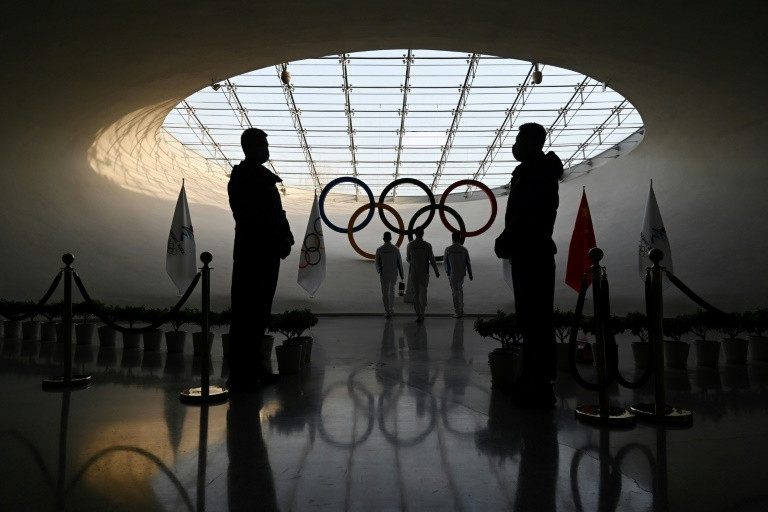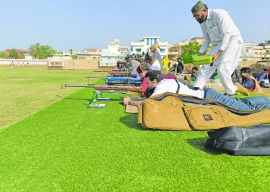
Beijing seals off its Olympic 'bubble'
Thousands of Games-related staff will be cocooned for weeks in ‘closed loop’
BEIJING:
Beijing sealed up its Winter Olympic "bubble" on Tuesday, preparing the Games venues, transport and staff for the world's strictest mass sporting event since the global pandemic.
China, where the virus emerged toward the end of 2019, has pursued a zero-tolerance strategy on Covid-19 and is taking the same approach to limit the pandemic's potential impact on the February 4-20 Winter Olympics and subsequent Paralympics.
Starting Tuesday, thousands of Games-related staff, volunteers, cleaners, cooks and coach drivers will be cocooned for weeks in the so-called "closed loop" with no direct physical access to the outside world.
That contrasts with the Covid-delayed Tokyo Summer Olympics, which allowed some movement in and out for volunteers and other personnel.
The global media and roughly 3,000 athletes are expected to start arriving in the Chinese capital in the weeks ahead and will remain in the bubble from the moment they land until they leave the country.
Anyone entering the bubble must be fully vaccinated or face a 21-day quarantine when they touch down, and everyone inside will be tested daily and must wear face masks at all times.
In an interview with AFP last Friday, Zhao Weidong, head of the Olympic organising committee's media department, said Beijing was "fully prepared".
"Hotels, transportation, accommodation, as well as our science and technology-led Winter Olympics projects are all ready," Zhao said.
Beijing's international airport activated its closed-loop system after the clock struck midnight on Tuesday, state-run CCTV news reported.
Two Japanese participants were among the first to go through the system, which was staffed by officials in full protective equipment and keeps all Games arrivals separate until they reach the Olympic village.
Passengers are subjected to temperature checks and coronavirus tests on arrival but can proceed to the village without waiting for test results.
"Suppose these people are carrying large luggage, such as bobsleighs, sleds or other sports equipment, they can hand over them to our logistics team here, who will deliver the equipment directly to venues or waxing rooms," Wang Yanling, operation manager at Capital Airport, told CCTV.
Fans will not be part of the closed loop, and organisers will have to ensure that they do not mingle with athletes and others inside the bubble.
People who live in China must also quarantine upon leaving the bubble to return home.
The system includes dedicated transport between venues, with even closed-loop high-speed rail systems operating in parallel to those open to the public.
It is set to be operating well into late March and possibly early April.
AFP reporters outside venues in Beijing saw workers erecting wire fences and security guards standing by in the winter chill.
Most major venues are outside of the capital.
Foreign diplomats in China have told AFP that the measures look to be so impregnable that they worry they will not be able to offer proper help to their nationals inside the bubble.
China's "zero-Covid" strategy has been successful in keeping cases low but the system has come under pressure with a series of recent outbreaks in recent weeks.
Xi'an, a historic city of 13 million, has been under lockdown for nearly two weeks after a spate of cases was detected.
Yuzhou, a city with a population of around 1.17 million people in Henan province, also began a lockdown on Monday night after three asymptomatic cases were discovered.















COMMENTS
Comments are moderated and generally will be posted if they are on-topic and not abusive.
For more information, please see our Comments FAQ